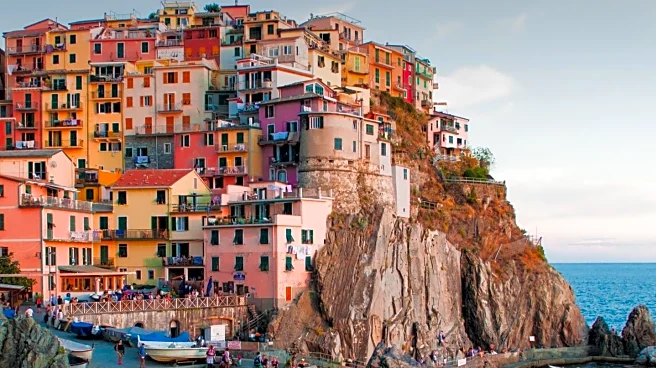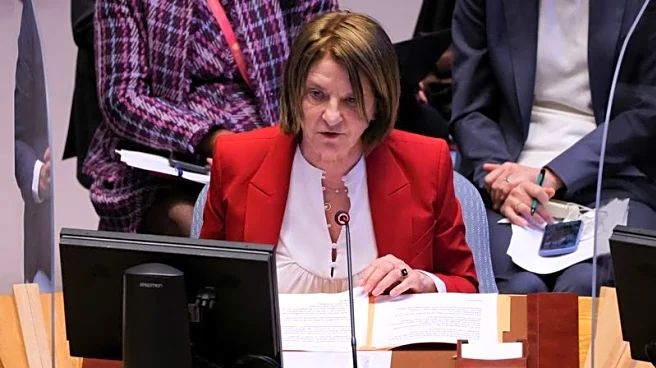What's Happening?
A travel reporter shared insights from her first trip to Italy, highlighting several regrets and lessons learned. During a six-day visit to Venice, Rome, and Milan, she realized that rushing through multiple destinations led to a less fulfilling experience. She noted that longer stays in fewer locations could enhance the travel experience and be more environmentally conscious. The reporter also found that traveling during shoulder season did not help avoid crowds as expected, and staying outside Venice contributed less to the local economy. She emphasized the importance of researching local etiquette to avoid fines and suggested a more aimless approach to discovering hidden gems, as experienced in Milan.
Why It's Important?
The reporter's reflections underscore the growing importance of sustainable travel practices. By advocating for longer stays, travelers can reduce their carbon footprint and contribute more to local economies. This approach aligns with the advice from Justin Francis, cofounder of Responsible Travel, who emphasizes fewer air miles and more local spending. The insights also highlight the challenges of overtourism in popular destinations like Venice, urging travelers to consider the impact of their choices. Additionally, understanding local customs can prevent negative interactions and enhance the travel experience, promoting cultural sensitivity and respect.
What's Next?
Travelers may increasingly adopt sustainable practices, opting for longer stays and off-season visits to reduce environmental impact and support local economies. Destinations might implement measures to manage tourist crowds and encourage responsible tourism. Travel companies could offer more guidance on local etiquette and promote lesser-known attractions to enhance visitor experiences. As awareness grows, the travel industry may see a shift towards more mindful and culturally sensitive tourism, benefiting both travelers and host communities.
Beyond the Headlines
The traveler's experience highlights broader ethical considerations in tourism, such as the responsibility to minimize environmental impact and support local communities. It also raises questions about the role of travel media in shaping perceptions and expectations, potentially influencing travel behavior. The emphasis on discovering hidden gems suggests a shift towards valuing authentic experiences over popular attractions, which could lead to a more diverse and sustainable tourism landscape.










